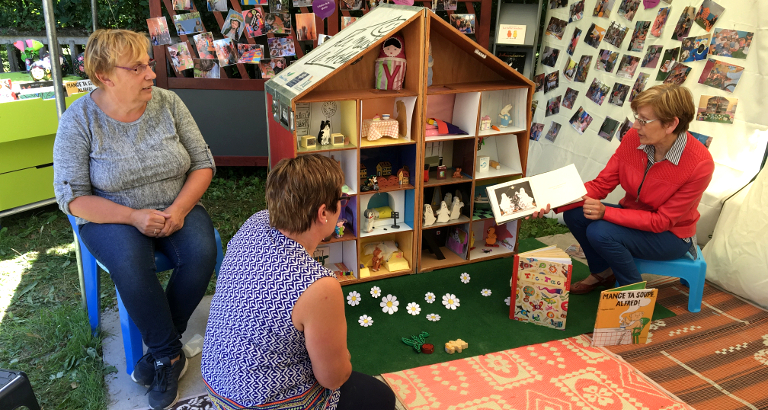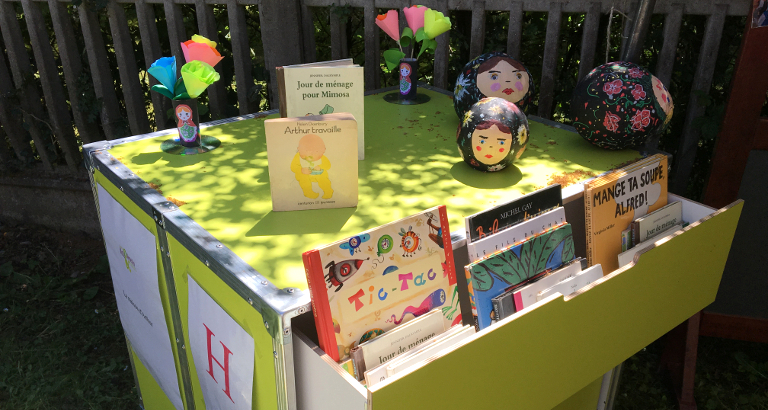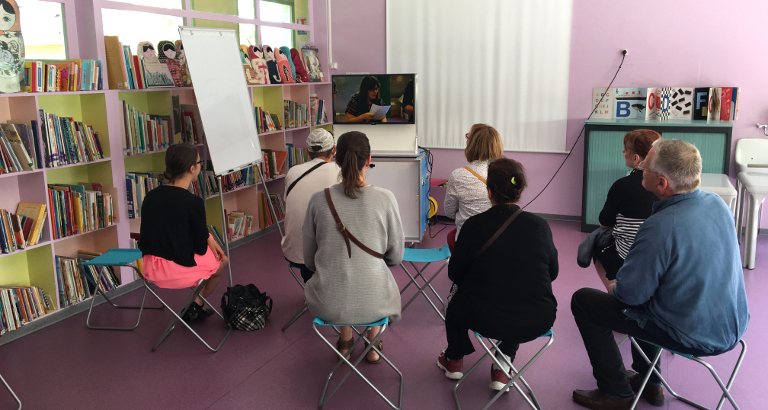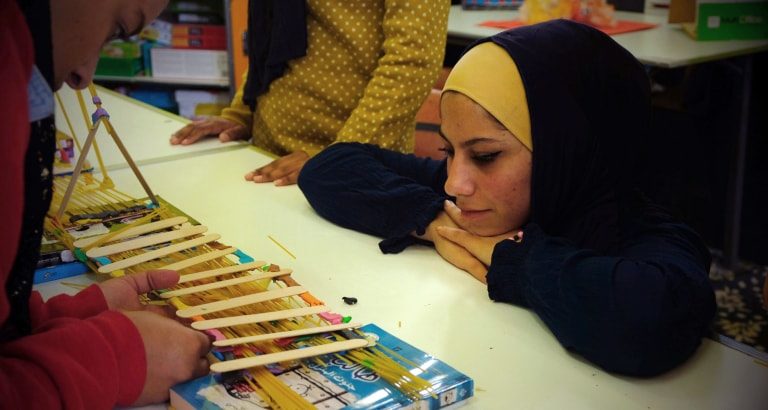The daily difficulties are numerous : to locate oneself on a map, order at a restaurant, take out money from an ATM machine, go shopping, to not know one’s birthday or age, or how to tell time or send emails. This makes social and professional integration very difficult, in addition to the transition to all things digital, the evolution of the job market and the dematerialization of administrative services, always pushing people towards more autonomy.
Very often, and shamefully, these people therefore use strategies of circumvention : forgotten glasses, wrist pain.
“Illiteracy is silent. When you have this difficulty, you don’t talk about it much, you hide it. It’s a reality: it’s easier to say, ‘I’m bad at math” or ‘I don’t know how to use technology’ than ‘I don’t know how to read or write.’”
Hence the importance of implementing actions of guidance and sensitivity to illiteracy near intermediary actors, like employment referents, teachers, social assistants or doctors.
“Certain patents don’t know, for example, how to read the given prescription. Once guided, they’re then oriented by health staff towards Mots & Merveilles.
We put an equal amount of actions in place for children. In nursery schools, for example, volunteers bring a suitcase of books for individual readings. Sometimes, it’s their parents who come to see us.”
With 17 employees and 291 volunteers, the association Mots & Merveilles is present in seven districts of the Sambre-Avesnois. In 2017, 754 people were involved, of which 678 were adults.
“For some, the book is a discovery; for others, it is an object of fear. The profiles of illiterate people are many: if there was only one profile, there would be an answer and there would be no more illiteracy.
I recently met a father who told me: ‘when my son comes home from school, I put a book on top of the refrigerator so that he doesn’t ruin it.’ Another mother, Marie-Agnès, was making her daughter copy the pages of the dictionary and of books when she was little, because she wanted her daughter to absolutely not end up like her. Some are afraid that their children learn to read and write because they fall into the other world…”






